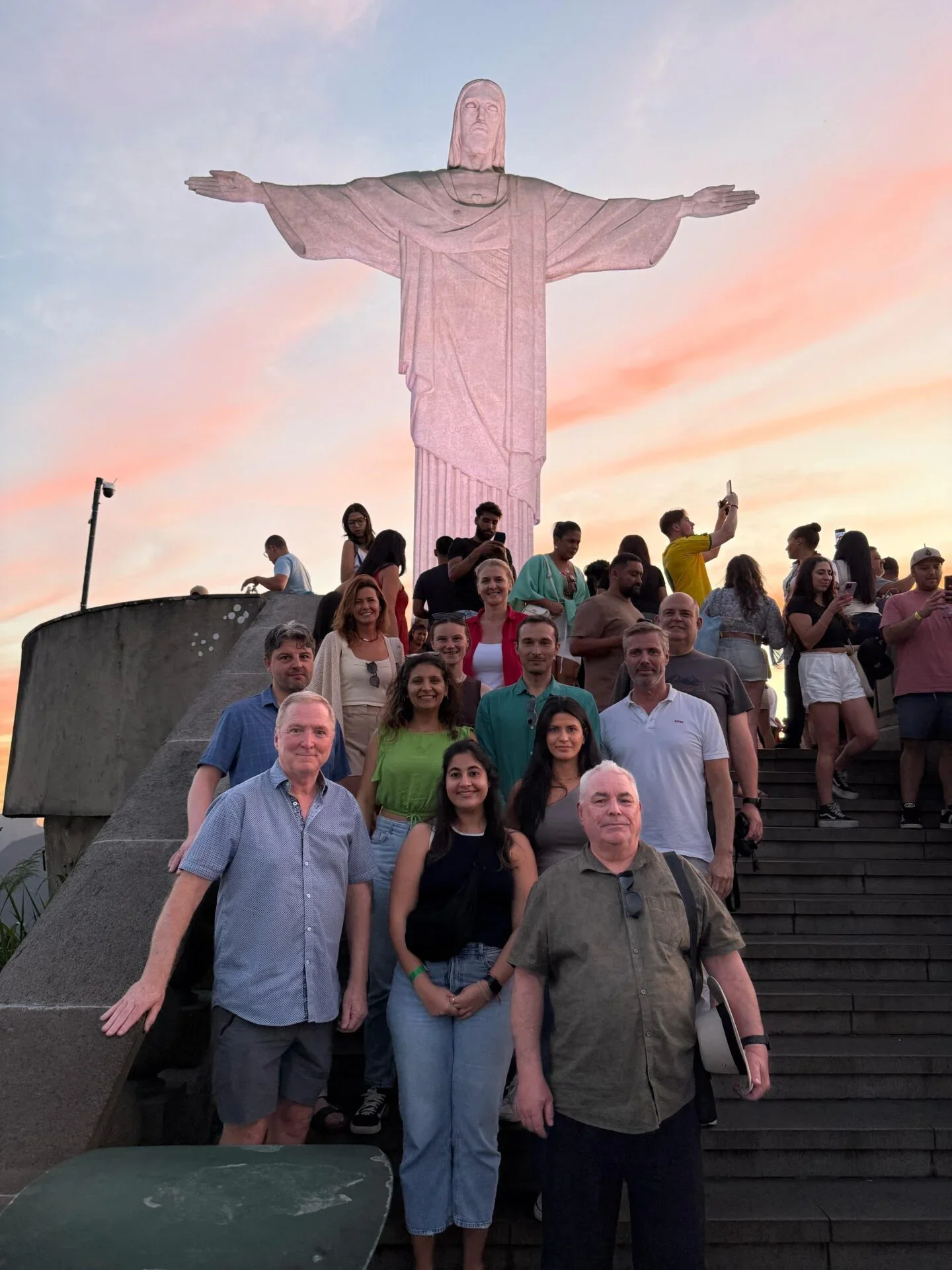State of Rio de Janeiro Opens ICN Annual Meeting With Call for Global Collaboration on Waste and Water Challenges
The ICN Annual Meeting officially began this week in Rio de Janeiro, bringing together members and partners from around the world for three days of exchange, innovation, and collaboration. Hosted on the top floor of a hotel overlooking Ipanema Beach, the event welcomed participants from at least eight different countries in person, with many others joining online.
The opening keynote was delivered by Ana Asti, Undersecretary of Water Security and Sustainability for the State of Rio de Janeiro, who presented a striking and urgent challenge faced by the region: the severe waste and sanitation crisis affecting more than 1,000 favelas across the state.
“These are the areas that need the most innovation,” Ana said, explaining how waste flows from hillside communities directly into the Guanabara Bay, carrying everything from bottle caps and plastic to large items such as sofas and refrigerators. The result is a heavily polluted bay, with serious consequences not only for public health and the environment but also for the local economy, fishing communities, and tourism.
Ana made it clear that while some solutions are in place – such as eco-barriers and waste monitoring – they are insufficient to address the scale and complexity of the problem. The ambition, she said, is not only to provide proper sanitation for residents in these underserved areas but also to foster a local blue economy, generating jobs and income around the water systems that are currently a source of risk rather than opportunity.
She emphasized the importance of international collaboration in meeting this challenge:
“We don’t know the answers to our challenges. We are looking for solutions and innovations that have been used in other places around the globe.”
“We need to think out of the box and look for solutions from other parts of the world.”
This opening keynote set the tone for the days ahead, where ICN’s unique network of clusters, companies, and governments will explore how shared knowledge and scalable innovation can lead to real-world impact.
Henrik Bjornager Jensen from Clean, a Danish ICN member, echoed Ana’s call for action and collaboration.
“This issue that Ana is describing is not unique to Rio de Janeiro. A lot of people around the world live without basic sanitation.”
He also pointed out the need to avoid narrowly defined, single-issue projects and instead aim for broader systemic change – a vision that aligns closely with ICN’s mission of fostering deep, cross-sectoral innovation partnerships.
To illustrate how this kind of work can succeed in practice, Bruce Raw from GreenCape in South Africa took the stage to present a successful case. In one project aimed at improving sanitation in a local community, the initial assumption was that toilets or wastewater systems were the primary need. However, after speaking with residents, it became clear that the most urgent issue was the lack of street lighting, which made it unsafe – especially for children and women – to use the toilets at night.
By starting with streetlights powered by solar panels, the project expanded to include public wifi (providing digital access and learning resources) and eventually led to job creation and skills training.
“The best ideas come from the people who live with the problem. But they need to be part of the process,” Bruce emphasized.
In total, the project created 72 jobs in a community of 600 households, showing how flexible and locally led innovation can lead to long-lasting change across multiple sectors.
The opening day of the ICN Annual Meeting made one thing clear: networks like ICN have a vital role to play in bridging bold public leadership with global expertise and bottom-up, community-driven solutions. The State of Rio de Janeiro has not only raised the issue – it has also extended an invitation to collaborate. Ana Asti reiterated that the government is open to working with international partners and willing to create pathways for companies and organizations with new ideas to contribute.
As the ICN meeting continues, this challenge remains central to our conversations:
How can we work together to co-create solutions that are scalable, inclusive, and genuinely transformative?

